Do you have a group of favorite athletes you just love to coach? Do they receive more attention and one-on-one coaching advice above the others? While parents and other players may consider this coaching style horribly unfair and biased, it is essential for the development of these athletes to grow beyond the game. Let me explain why.
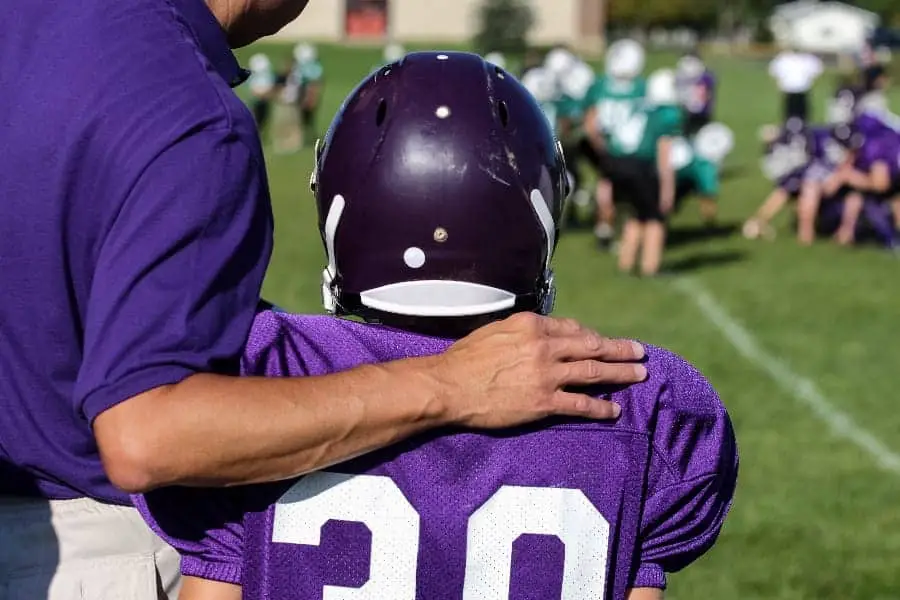
Why Do Coaches Have Favorites? Coaches play their favorites because they are committed, coachable, punctual and supportive of their teams success. Having favorites sets a precedent for the rest of the team on how you expect them to behave and interact. All players can become favorites if they learn, embrace and consistently display these behaviors.
Ask yourself, would you want to spend more time with the athlete who listens, works hard and ask questions in order to push themselves to improve? Or do you essentially ignore these players, spending more time disciplining the athletes who disrespect you? This post dives into this tender topic to tease out how favoritism in sports can work to the entire teams advantage.
The Wrong Kind of Favoritism
Let me get one thing straight, right off the bat. Not all coaches are good coaches. Not all coaches will play the committed, hardworking player and will instead prioritize either their own child or the ones who may be naturally talented, but have poor attitudes and only care about their own individual success.
I am not talking about these coaches.
These coaches only care about the numbers on the scoreboard and not about developing athletes into good, respectful people. They are more interested in their winning record and being noticed by other senior coaches for a chance at promotion. They are blind to noticing the punctual, committed kid showing up each and every week, trying to perfect his left-hand layup or slide into 1st base.
Related post: Is Youth Sports Too Intense? A Message For Our Coaches
While these kinds of coaches may have a place in professional sports as it’s more “cutthroat,” they are not welcomed at a youth sports level.
So I guess there are two types of coaches when we look at favoritism. One who has a “win at all cost mentality” who will play the same kids over and over again during a busy tournament, just to come out holding the tiny championship flag. While on the flip side, the other is the coach who plays his favorites, but not necessarily the most talented player. He honors and respects kids who listen, adapt, work hard and show up on time by giving them more attention.
The big difference between the two, that is often misread, is the second coach has a flexible favorites list. They want their list to grow. They want all the athletes to be their favorites by allowing them to learn, progress and develop a particular set of traits. Though often impossible to achieve, this is the challenge for a great coach, particularly at a youth level.
Let me talk about this second kind of coach and why we need more of them coaching sports at all levels.
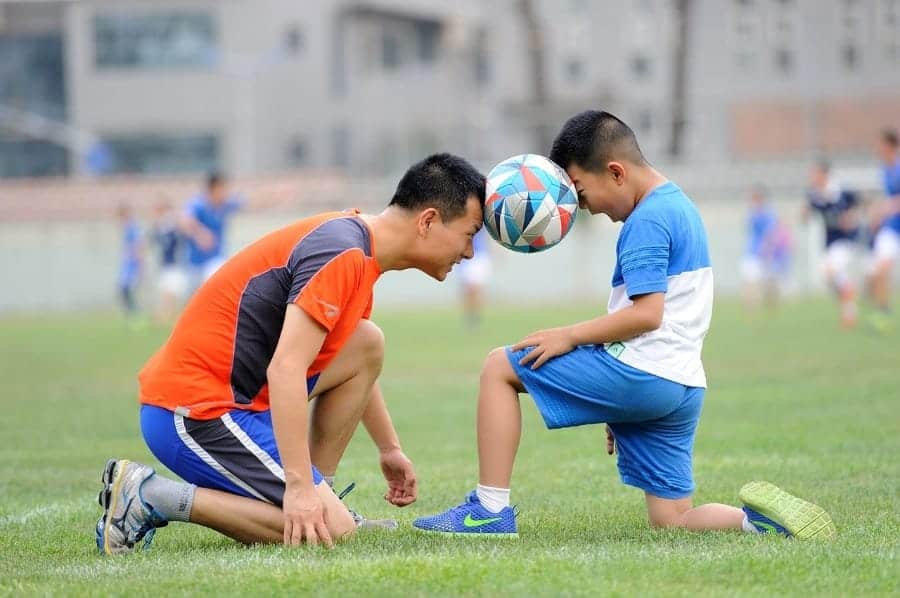
Necessary Favoritism
In order to build a united, strong, motivating and supportive team, coaches need to set standards and expectations for their players, coaches and parents.
Some people will buy-in to this message because they want to play and have been taught to respect their coach, even when at times they may disagree. But others will rebel, trying to bend the rules.
If coaches see players honoring these rules and standards by showing up on time, with their equipment ready and willing to work hard and improve, it’s only natural that coaches are drawn to these athletes.
Do they give them more attention and even expect more from them? You bet. Does this mean the other kids are not learning and improving as quickly as the others? Possibly.
But picture this.
You’re coaching a local basketball team and you have two kids resembling the “bash brothers” from the Mighty Ducks, who constantly disrupt, talkback and refuse to buy into the teams philosophy? Do you spend all your time trying to discipline these kids? Do you create drills specifically for these badly behaved players? What kind of message is this sending to the other kids trying to do the right thing? So, if I talk more while the coach is talking and mess around, they will give me more attention.
Athletes need to clearly see that if you display the qualities outlined at the start of the season and which are emphasized each and every practice, you too will receive more attention from the coach and consequently have a greater chance of improving at a faster rate. Aka… becoming a favorite.
But what are these qualities good coaches reward and see in their favorites?
The interesting part is this list of qualities can change from coach to coach and why a clear message is critical at the start of the season. Read How Beginner Youth Sports Coaches Can Earn Player Respect. But here are 5 common traits often seen in the coach’s favorites to get you thinking.
- Coachable. Coachable is about attitude, not athletic skill
- Punctuality and a readiness to work hard
- Committed to both improving as an individual but also as a team
- Confident but not afraid to fail
- Adaptable to changes (position, technique etc) and takes on board constructive criticism
Can these qualities be learned? Absolutely. But is every athlete going to want to buy in? Will every athlete be supported at home to adapt to these changes by altering their mindset and attitude? No. That leads us into the next point.
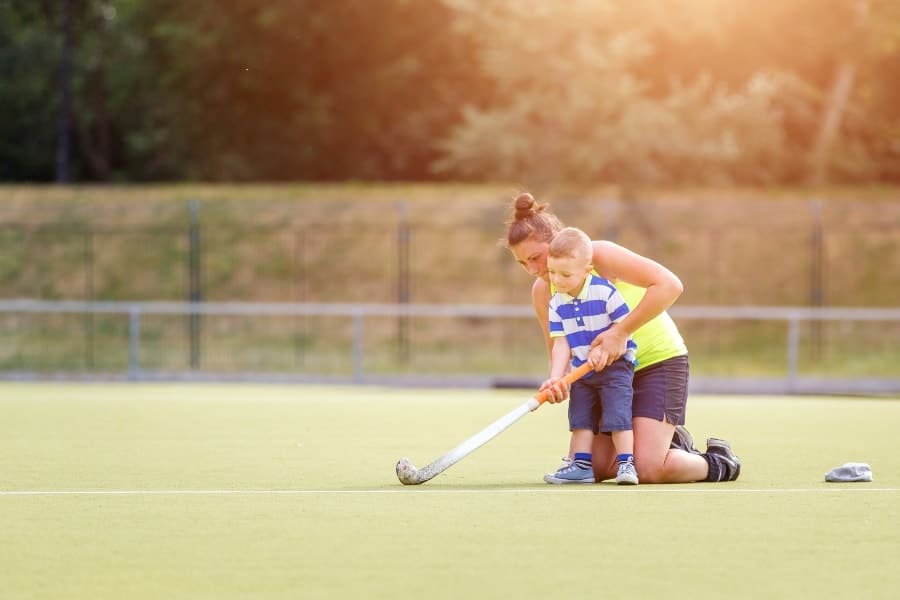
Building A Team of Favorites
Again, it’s natural to want to reward players who have listened all week at practice, who worked hard and welcomed instructions even if they differed from last season’s coach.
Is it wrong that coach likes this? Rewarding athletes for doing what you asked? I don’t think so.
It’s showing your other athletes that certain behaviors will be rewarded instead of focusing on bad behaviors being penalized.
However, simply benching or penalizing athletes based purely on their actions can be ignorant and naive. While I am a firm believer that we have 100% control over how we behave, a good coach needs context. Is there another reason why your player doesn’t buy into the program? Is there something holding them back which is manifesting as disrespectful behavior?
Is it due to their parents? Are they being encouraged by mom or dad to “shoot more” and “not pass to him because he’ll miss” or even providing payments for their kids when they score?
Is it due to a past coach instilling fear into the minds of particular players to act in a certain way or else they wouldn’t play?
Or have they grown up in a financially challenging, unsupportive environment where they missed out on a loving childhood leading to this behavior?
While these “excuses” or should I say reasons are not permissible, they give the coach the ability to modify and adapt their own coaching strategy. A simple tweak in practice or an altered communication technique could change the game for some athletes.
An interesting thought about favoritism though, which coaches need to be aware of, is the kids are in the middle. The kids who might not be the highest scorer nor the really well-behaved kids. I am talking about the players who may be on-time to practice but forget their equipment. I am talking about the athlete who does talk back to you when given an instruction, but they are often intriguing points forcing you to consider their point of view. I’m talking about the kids who are still learning about the power of teamwork instead of individual performance.
Where do these kids sit on your favoritism scale?
As coaches, we need to acknowledge that athletes will learn and develop at different times. You may be the only person in their life who has made them truly accountable for their behavior. Be firm but fair, open to the possibility that not all players are having the same experience off the court.
It’s your job not to build a team of favorites, but to create a space where athletes want to become favorites.
But Does Being a Favorite Mean You Are Boring?
When you think of a “teacher’s pet”, these students alway sit straight, hand in work on time and don’t whisper to their friends in class, right?
While all coaches want an element of this good behavior, they also want kids to explore their potential, try new positions and be themselves, not afraid to make a mistake.
We learn by messing up. Having to pick ourselves up, dust off past experience and try again is part of sports and building resilience. Keep this in mind when creating an atmosphere that engages your athletes to want to become favorites.
No team is full of easy, coachable kids. None. There is always one or two which challenge authority and refuse to buy into your message. To help out we wrote a post titled, Coaches Guide to Managing Disrespectful Youth Athletes to give coaches the tools to safely and respectfully manage these athletes and give you an understanding of what else might be going on outside of the arena.
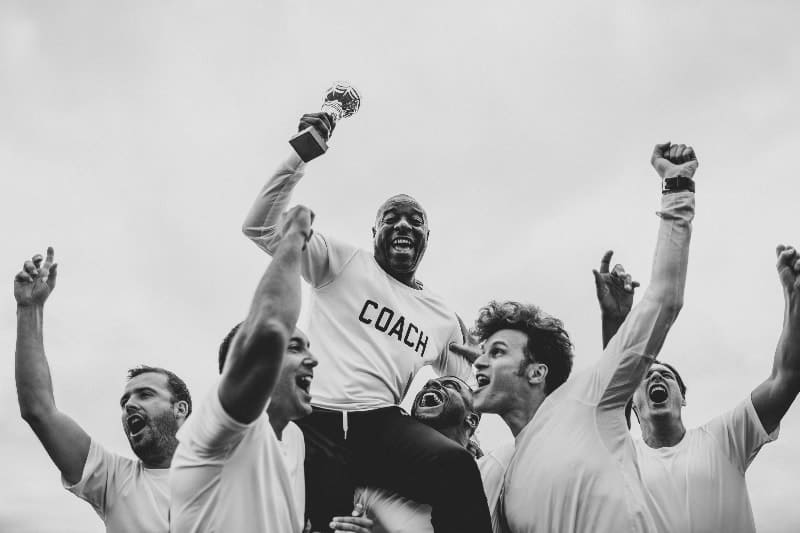
Can Your Favorite Athlete Play Multiple Sports?
Coaches want kids in their team who are committed to improving their own development as a player and for the team. But can you do this playing multiple sports?
It makes it difficult when athletes are running, literally, from one practice to the next just to make it in time. We talk about the need for athletes to play multiple sports and avoid early specialization, but at the same time, coaches demand relentless commitment to one sport.
It’s no wonder the athletes are confused.
Most coaches will encourage athletes to play multiple sports and discover different interests. But to become a “favorite”, all coaches will ask is that you arrive at their practice or game in a state to play. You are mentally and physically prepared to do your best and not puffed out running from a previous practice.
So can you be a favorite and play multiple sports? Yes. But only if you can show dedication, commitment and hard work when you arrive at every practice and game.
Related post: What Makes a Bad Youth Sports Coach? How to Not Become One
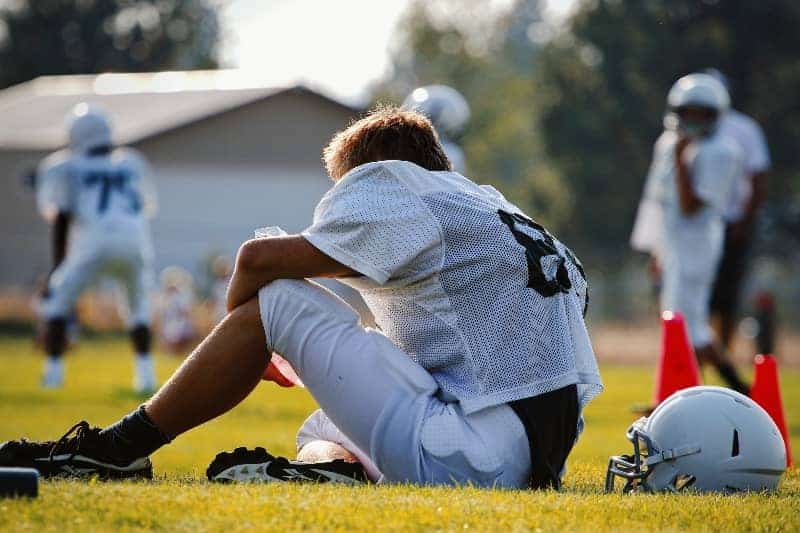
Summary: Why Do Coaches Have Favorites?
Coaches are drawn to athletes who want to get better. They are drawn to athletes who are punctual, have a good attitude and respect the team rules and expectations, but are often not the most talented player.
Good coaches have favorites to show to the rest of the team about what is expected and valued. But the best coaches give all athletes the ability to become a favorite if they adopt certain qualities and behaviors.
Do you have favorites? How do you ensure you are giving all athletes the ability to prove they too can make your favorites list?
Cheers,
Emma
